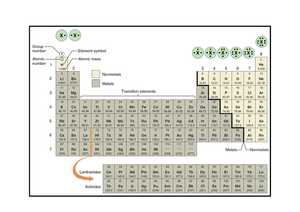- Information
- AI Chat
Was this document helpful?
CLP CCB 20202 Mass Transfer
Course: Chemistry 1
6 Documents
Students shared 6 documents in this course
University: Universiti Kuala Lumpur
Was this document helpful?

UNIVERSITI KUALA LUMPUR
SAMPLE
COURSE:
CCB 20202
COURSE LEARNING PLAN | Page 1 of 5
UniKL MICET
COURSE LEARNING PLAN
To be shared with students.
SECTION A: COURSE DETAILS
1
Course Name
Mass Transfer
2
Course Code
CCB 20202
3
Academic
Staff Name(s)
Dr. Rapidah Othman
4
Rationale for
inclusion of
Course in the
Programme
This course covers fundamental knowledge in diffusion and mass transfer. These
concepts are essential in understanding basic principles of main unit operations
processes in chemical engineering. This course is also important in chemical
engineering calculation related to design of unit operations.
5
Semester&
Year Offered
Semester: 4
Year: 2
6
Student
Learning
Time (SLT)
Face to Face (F2F)
Independent
learning
TOTAL
Lecture
Tutorial
Practical
Other
TOTAL
14
14
-
4
32
50
82
7
Credit Value
2
8
Prerequisite
Nil
9
Learning
Outcomes
Upon completion of the course, students should be able to:
1. Evaluate diffusion coefficients in gas, liquid and solids. (C5)
2. Analyze mass transfer in turbulent and laminar flows. (C4)
3. Examine problems involving diffusion and interphase mass transfer. (C4)
10
Transferable
skills
Skills
Development of the skills
Skills
assessment
1. Teamwork
Students are required to work in team
during practical, presentation and
laboratory reports.
Nil
2. Participation and
communication
skills
Communication skills – via written
laboratory reports and presentation.
Students’ participation in running the
experiment, questioning and answering
questions.
Participation also includes students’
time management.
Rubric
11
Strategies
Teaching & learning
Assessment
Teaching and learning will be via lecture,
group discussion and tutorial sessions.
Students will also be required to do their
own self-study on certain topics and
assignments.
Assessment will be both formative and
summative. Students learning will be
assessed using written tests, assignments
and final examination.
12
Synopsis
This course will introduce the students to the theories of diffusion and mass transfer
involving steady state and unsteady state mass transfer, interphase mass transfer and
convective mass transfer.
13
Mode of
Delivery
Lecture and Tutorial



